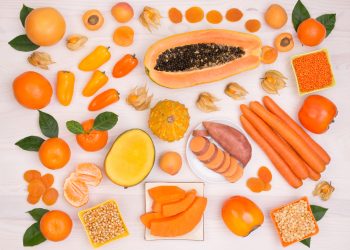It seems like every year a new and improved supplement comes out. Many of these supplements take the form of vitamins, and their trendiness goes in cycles. Usually these cycles are quite predictable:
- Vitamin XYZ is studied and hyped by nutrition experts
- Vitamin XYZ is released to the public and makes its way to a store new you
- Vitamin XYZ is studied more…and turns out not to be all it was hyped up to be
- Vitamin ABC is studied, hyped, and put in vitamin XYZ’s place
See the pattern? Trendy vitamin supplements come and go, only to be immediately replaced by the next supplement du jour.
But are these isolated vitamins healthy, or is the hype surrounding them exactly that? Keep reading to find out.
- Isolated vitamins: hope vs. reality
- The major drawback to isolated vitamins
- The advantages of dietary vitamin sources
- The beauty of organ meats
Isolated vitamins: hope vs. reality
When it comes to isolated vitamins and their purported health benefits, initial hopes usually differ from eventual reality. Allow us to explain.
When researchers first discovered the benefit of having a higher omega 3:6 ratio in one’s bodily tissues, they decided that making omega 3 supplements would be a good idea. This conclusion made logical sense, as supplementing omega 3’s would be a surefire way to raise one’s omega 3 levels and heighten their omega 3:6 ratio. [1]
But that turned out not to be the case. Studies that compared omega-3 supplement-takers with non-supplement-takers found no benefits associated with omega 3 use. When other researchers zoomed back a little bit and compared fish-eaters to non-fish-eaters, though, they did indeed find an omega-3-mediated benefit. [2] It’s clear from these findings that omega-3 supplements just aren’t able to capture the beneficial ‘essence’ of omega-rich fish — there’s more to the story.
A similar phenomenon occurred just as vitamin D was getting popular. Researchers found that those with higher vitamin D levels were more resistant to colds, the flu, autoimmune disorders, and general stress. [3] These findings spurred on the creation of dozens of flashy new vitamin D supplements.
When additional research attempted to elucidate the benefits of vitamin D supplementation, however, said benefits turned out to be very inconsistent — if they occurred at all. Today we know that vitamin D is best obtained from the sun (or from a low-UV sun lamp for those of you who deal with dark winters).
The major drawback of isolated vitamins
Why don’t isolated supplements always pan out the way you’d think from early research? Several reasons.
The first reason is the simplest one: fresh food is the best ‘carrier’ for vital nutrients. If you strip a nutrient away from the food it’s contained in, it may degrade before your body even has a chance to use it.
Quality control issues are another reason isolated vitamins often fail to live up to the hype. Many vitamin supplements contain fillers, binders, gums, and other subpar ingredients that cause low-grade inflammation. This inflammation, in turn, can easily negate the very benefits of the vitamin or mineral in question. Some common fillers are actually carcinogenic.
The advantages of dietary vitamin sources
Obtaining one’s vitamins and minerals from dietary sources is almost always the best option. While a select few vitamins (notably vitamin K2) are notoriously hard to get from ‘Westernised’ foods, the vast majority of them can be obtained simply through eating a diversified ancestral diet and drinking spring water. Below are a few benefits of getting your vitamins from whole foods and other diet-based sources:
Dietary sources are more affordable
It takes time, effort, and special machinery for a supplement manufacturer to isolate a vitamin from its native foods — and all of this is reflected in the price. Supplements are normally marked up several times above their production cost, first as they go from manufacturer to wholesaler and then again as they go from wholesaler to retailer. While there’s nothing necessarily wrong with that, choosing isolated vitamins over dietary sources is at the least financially inefficient.
Dietary sources are less likely to be spoiled or oxidised
Vitamins and minerals often lose their protective covering after they’ve been isolated. Let’s take the case of omega-3/fish oil as an example. When omega-3 fatty acids are still present in fish, they’re protected from premature oxidation by antioxidants, like astaxanthin, that are also present there.
Once isolated, placed into translucent capsules, and shipped off all around the world, however, this once-incredible omega-3 source may have already been degraded by light or heat into far less helpful byproducts. Peroxidised omega-3s can actually be downright dangerous. [4]
Dietary sources are less likely to contain fillers and binders
While our modern food supply is far from perfect, shopping local and/or organic presents a sure way to know what you’re eating.
The same certainty can’t be had with supplements — not even organic ones. The vitamin supplement industry is notorious for diluting with fillers, paying off labs, inadequately testing products, or otherwise skirting around important quality controls. And the newer any given type of supplement is, the more likely supplemental products are to have these problems. Take the newly-booming CBD industry, for example. Studies show that up to 70% of CBD products are mislabeled. Some top ‘CBD products’ don’t contain any CBD at all! [5]
Dietary sources are more diversified (i.e. they might contain several different versions of any given nutrient)
One more benefit of getting your vitamins and minerals via whole foods: diversity. Most of nature’s best vitamins exist in several different isomers. Almonds, for example, contain several different forms of vitamin E and several different essential fatty acids; you’d be hard-pressed to find any vitamin E supplement or omega-3 supplement as holistic.
The diversity of dietary vitamin and mineral sources means they have another vital quality to offer: synergy. Most supplements don’t do a very good job of taking nature’s design into account, which means they often leave out secondary ingredients that might’ve helped the primary ingredients work even better.
The supplement vitamin K2 provides a great example of this pitfall. Taking a few drops of K2 might allow you to hit your RDV with ease, but those drops miss out on the dietary fat that’s present in nearly all K2-rich food sources. It turns out K2 and fat exist together for good reason — fat measurably boosts its absorption.
All in all, there’s rarely a legitimate need to spend money on pricey isolated supplements…especially when a better type of supplement is available.
The beauty of organ meats
While organ meat supplements do indeed have the word ‘supplement’ in their name, they’re actually whole-foods products. Think of our organ meat capsules as condensed versions of their fresh counterparts; though highly concentrated, they don’t contain any isolated vitamins whatsoever.
Organ meat supplements also take full advantage of nature’s best compound + compound synergies. Their vitamin A content takes the form of a highly stable preformed isomer, while their iron content is highly bioavailable. Even the tiny protein-like peptides present in fresh organ meats remain intact.
The B vitamins in organ meat capsules, meanwhile, boost one’s metabolic rate so that they can process these goodies efficiently. Unlike isolated vitamins that invariably fall short, organ meat supplements provide a truly complete recipe for holistic health.
Summing things up
So, are isolated vitamins unhealthy? While the answer to that one surely depends on which vitamin we’re talking about, we can say this: isolated vitamins pale in comparison to their whole-foods counterparts. Our beef organ capsules provide the benefits of dozens of different vitamins, minerals, and peptides — all in a combination that stays true to mother nature’s original design.









